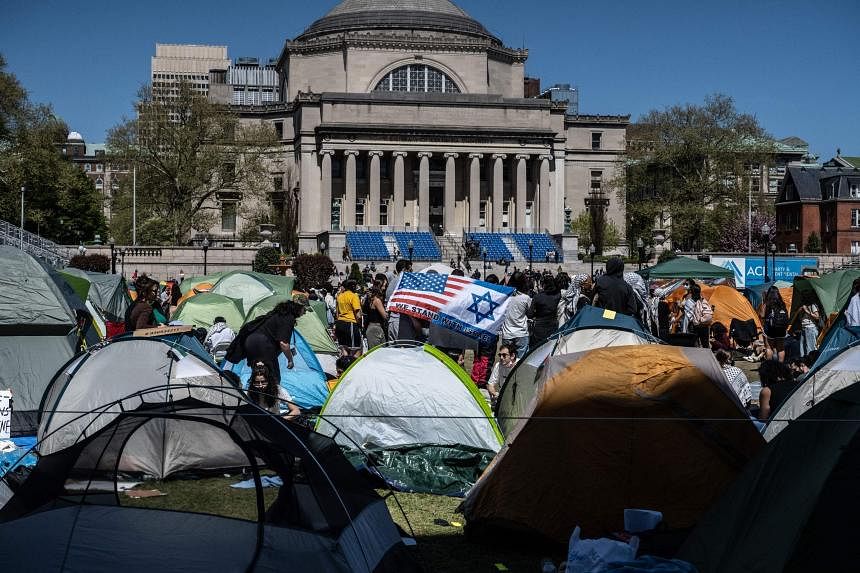Pro-Palestine Protests Rock Universities Across the Globe
Reported by Deeksha
Pro-Palestine protests have ignited at universities worldwide, sparking debates over free speech, hate speech, and campus security.
In the United States, clashes between law enforcement and students erupted at Northeastern University, Boston, where riot-gear-clad police detained over 100 protestors and dismantled their encampment. Similar scenes unfolded near Arizona State University and Indiana University, resulting in dozens of arrests.
University administrators are grappling with the delicate balance between free expression and alleged hate speech amid the protests. Some campuses have faced criticism for involving law enforcement, with concerns raised over the use of force.
MIT and the University of Pennsylvania are among those justifying police presence, citing disruption and policy violations. However, faculty members at UPenn dispute the administration’s portrayal of events.
Columbia University, where the movement originated, has remained relatively calm, with authorities denouncing antisemitic rhetoric. Nevertheless, solidarity protests have sprung up across Ivy League and other prestigious institutions.
Internationally, McGill University in Canada saw its first encampment, while solidarity protests erupted in the UK, France, Germany, and Australia.
The protests stem from Israel’s military actions in the Palestinian territories, which activists allege constitute genocide and war crimes. They call for governmental and institutional divestment from Israel and its defense contractors.
In response, Israel and its supporters have decried the protests as antisemitic, while critics accuse them of stifling dissent.
As universities grapple with the fallout, faculty at some institutions have expressed dissatisfaction with leadership decisions, though their votes of no confidence are symbolic.
The global wave of student activism underscores the complex intersection of geopolitics, human rights, and academic freedom on campus.





